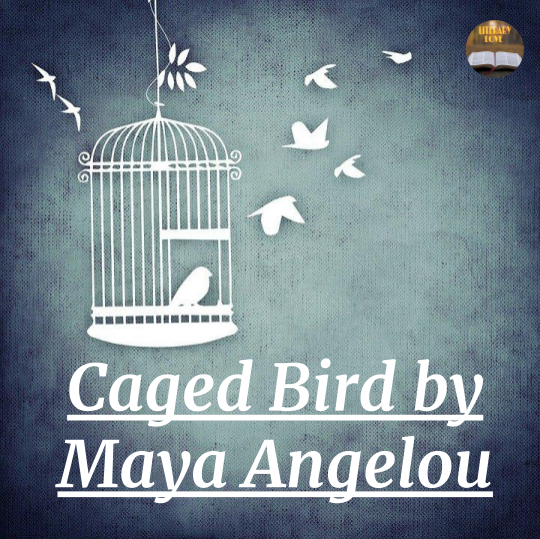The Little Black Boy by William Blake
INTRODUCTION -
"The Little Black Boy" is a famous poem written by the celebrated English poet, William Blake. It was published in his collection, Songs of Innocence in 1789. It is a twenty-eight-line poem divided into seven quatrains. Each stanza follows the rhyme scheme of ABAB. This poem centers on a spiritual awakening to a divine love that transcends race. The poem argues for racial equality, insisting that earthly identity is temporary and that all are worthy of God's divine love. The speaker is an African child who has to come to terms with his blackness. Blake builds the poem on clear imagery of light and dark.
POET -
William Blake (28 November 1757 – 12 August 1827) was an English poet during the Romantic Age. His works have a strong, thoughtful, and mystical view, portrayed in a very artistic and expressive form. His most important works are his “prophetic works” - The Book of Los, The Song of Los, Vala, or The Four Zoas, and Milton a Poem, among many others. His other important works include Songs of Innocence and Experience, The Marriage of Heaven and Hell, The Lamb and Jerusalem.
SUMMARY -
The poem begins with the speaker who is a black boy describing his birth and skin colour. He continues by saying that he was born in “the southern wild” of Africa. He argues that even though his skin colour is black, his soul is pure white. He further says that the English boy has fair, white skin but as his skin is black, he looks like he lacks the divine light of God.
He describes to us a lesson his mother taught him one morning as it was not too hot to go out. His mother sat down under a tree with her son in her lap and kissed him. Then she pointed towards the east direction and told her child a few things.
She told the speaker to look at the sun as it rose, and said that's where God lives. God offers His light and warmth to all of us. All the living beings-plants, animals, or humans-of the world receive comfort and joy from His energy.
The mother continues her lesson by saying that God put us here on earth, in a small space so that we could learn to accept and appreciate the rays of his love. The black bodies and faces are just a cloud or the shade from trees.
She says that once our souls have learned to bear and accept the heat, God will announce that there is no longer any need for our earthly bodies. He will invite us out from the shade and invite us to play around his home like joyful lambs.
Hence, the speaker says that's what her dear mother told him, and he passed on this lesson to the English boy. He believes that when they will be freed from our earthly identities; the speaker from his blackness and the English boy from his whiteness, they will gather around God's tent(Heaven) and play in joy and freedom like the lambs. Lambs are a symbol of God, children, innocence, and purity.
The speaker who is the black boy promises that he will offer The English boy shade from the rays of God's love until he can learn to accept and bear the heat of His love. Once he learns they will lean upon God's knee. Then the black boy will stand up and stroke the English boy's white hair. As now they both are similar and have the same pure white soul, The English boy will love and accept him.
THEMES -
- Racial Equality- The poem supports racial equality and protests against discrimination based on skin colour. It says that race will cease to matter when the speaker is united with God in the afterlife. The poet here brings out white and black as symbolic concepts, with whiteness/light (that is, an absence of darkness) being associated with goodness, purity, and love. The skin colour of the speaker may be dark but his soul is pure and innocent because it is white.
- God's divine love - The poem presents a vision of the Christian afterlife and argues that people’s identities on Earth are only temporary. The poet explains and informs the meaning of earthly existence, and declares that before too long people will be reunited with a fundamentally loving and kind God.
END -
The poem was published during a time when slavery was still legal and the campaign for the abolition of slavery was still young. It aims for an empowering message that reinforces many negative and outright racist stereotypes about Black people that were prevalent in the 18th century and even today.











0 Comments